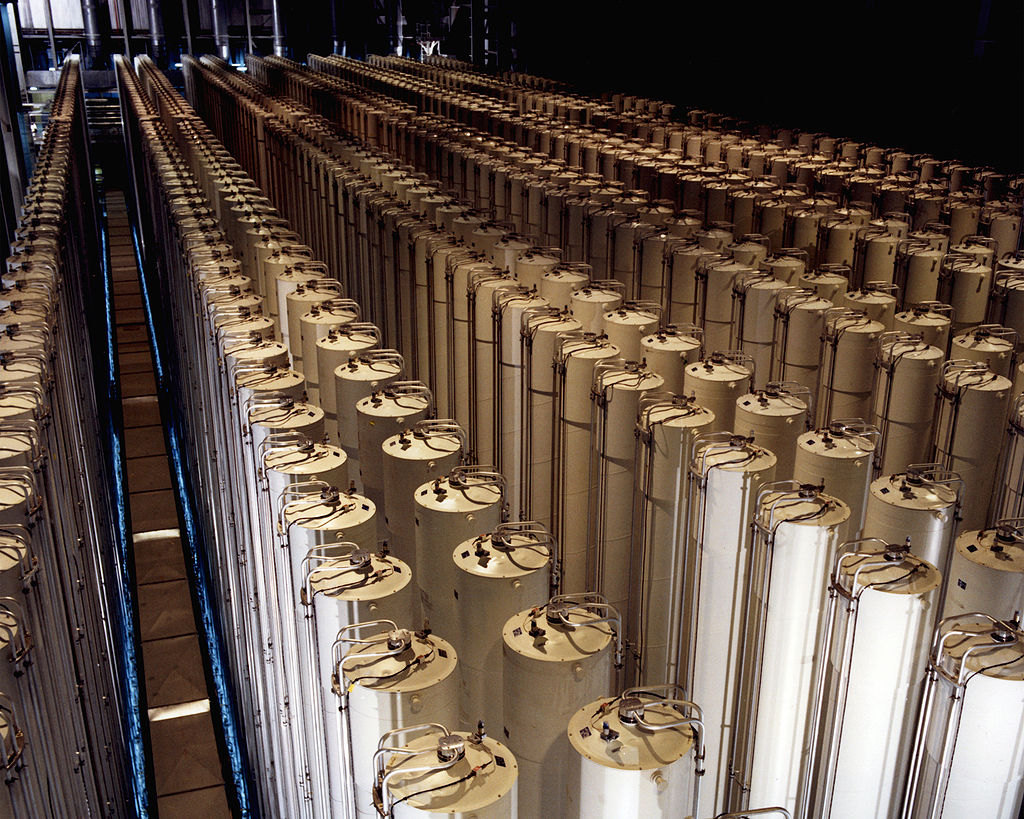Bring “Ban faster SIMD semiconductors” into the Overton window
Tl;dr; Governments can regulate semiconductor manufacturing more effectively than AI research. Clamping down on SIMD processors (same instruction, multiple data) can regulate AI, globally, effectively, without too much spillover to other industries.
SIMD chips are the enriched uranium of AI
Physicists are the famous flag bearers of nuclear weapons, but research was less than 10% of the Manhattan Project’s budget and their importance is greatly overstated. Smart highschool students can do the physics needed to design a basic gun-style nuclear bomb. More advanced designs are difficult on the scale of a startup, not difficult on the scale of a nation-state. The physics of nuclear bombs is not particularly secret, difficult, or expensive to reproduce.
What’s difficult and expensive is creating fissile materials. The uranium enrichment and plutonium production efforts of World War II were massive industrial enterprises: approximately the size of automobile manufacturing at the time.

A uranium enrichment plant. Each column is 40 feet (12 meters) high and has a tube inside rotating at supersonic speeds
Nuclear non-proliferation doesn’t doesn’t concentrate on physics secrets or physicists. You can’t regulate physicists globally. The key ideas fit on a napkin. Even if you could prevent 99% of physicists from working on nuclear weapons (or working on nuclear weapons for the “wrong” people), that remaining 1% would be more than enough to make a bomb.
By contrast, you need the expertise of thousands of people across a wide range of industries to produce fissile materials. A blockage anywhere in the supply chain (motor controllers, high tensile strength alloys, manufacture of tubes where the slightest imbalance will cause it to rip itself apart) will halt progress on a bomb. If you want to stop actors in a foreign country from making a nuclear weapon, these are your main control points.
The computer science of AIs is pretty simple. The design of GPT is 5 years old and fits on a napkin. You can try to regulate AI researchers to do only good things, but even if you convince 99% of them (all over the world) the remaining 1% might still kill everyone.
Semiconductors, on the other hand, may be a hard requirement for near-term AGI, and are the most complicated manufacturing process in human history. Critical supply chains span continents in a myriad of ways [You need ASML as a supplier]. Hundreds of thousands of people – people who can have their assets seized if they don’t comply with regulations – are critical, necessary parts of the semiconductor supply chain. You may think governments are bad at many things, but they are very good at putting roadblocks in the path of complicated processes.
SIMDs are targeted
If we had to halt all kinds of semiconductor manufacturing, there would be enormous push-back from other sectors. However, modern AIs rely on massively parallel SIMD (same instruction, multiple data) processors. Unlike the general purpose processors that power most computers (made by Intel, AMD, Arm, etc.), SIMD are generally only used for a few very specific purposes. One use is the GPU in video games. Another is crypto mining. But the biggest hottest area, the one with the most room for improvement, is AI. If we need to stop people from building AGIs globally, this is where we should look.
Let’s get the idea of banning (or severely regulating) faster SIMD processors “in the air”. Talk about it. Advertise it. Tweet it. Discuss it. Write about it. If regulators decide “something must be done” about AI, have this option be at hand as “something we can do”.
it’s far too late for this to save us.